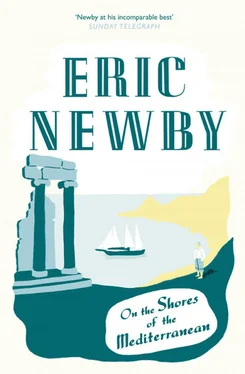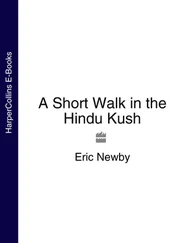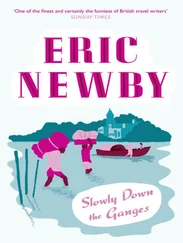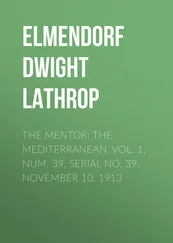From Cetinje we travelled down to Virpasar on the shores of Lake Shkodër by a very minor road through the Kremenica Mountains. There we waited for Tour Group ALB 81/6, the group with which we were to visit Albania, group travel being the only permitted form of travel in the country, to arrive in a bus from the airport at Titograd, which they did at a quarter to eleven at night. We now numbered thirty-four people – English, Scottish, Welsh, Irish from both sides of the border who didn’t mix with one another, three Canadians, a New Zealand lady and a German boy with a fine, full beard, apparently anxious to try out the Albanian barbering facilities. No Americans were allowed into Albania, no Russians, no Chinese, no Yugoslavs, nobody with ‘writer’ or ‘journalist’ inscribed in his or her passport, no males with long hair or beards, unless ‘with a large shaven area between sideboards and start of beard … should authorities not be satisfied in this respect beards will be cut by the barber on arrival’. No mini-skirts, maxis, flared trousers, no bright colours (‘People may be asked to change,’ although a couple of girls defiantly flaunting forbidden, folklorique maxi-skirts were not). No Bibles, since a bold band of Evangelists, having pondered the possibility of dropping Bibles on the by-that-time officially Godless Albanians in a free fall from a chartered aircraft, had decided to join a tour and deliver them in person. No Korans, either.
While eating dinner – soup with what looked like weeds in it from the lake and the worst sort of Balkan rissoles – we observed our new companions, wondering, as they were too presumably, who among us were revisionists, anti-revisionists, who was representing MI6, the CIA and similar organizations, and which ones were writers and journalists in disguise.
Meanwhile, the Tour Leader went over all the other things we weren’t to do in addition to wearing beards and skirts of forbidden lengths while in Albania. There seemed an awful lot.
‘What happens if I die in Albania?’ asked a fragile septuagenarian with her mouth full of rissole.
‘There’s a hot line to the French Ambassador in Tirana [Tirana is the capital of Albania]. He takes over. It shouldn’t hold us up much.’
Next morning the sun rose out of the mist over the lake, looking like a large tangerine, silhouetting the rugged peaks of Albania the Mysterious, away on the far side of it.
It was market day at Virpasar and the market was taking place under the trees at the end of a causeway which crossed a little arm of the lake. Every moment more and more people were arriving with their mules and donkeys, driving or riding them along the causeway, the women wearing white head-dresses, and white skirts with white pantaloons under them. Others, fishermen and their wives, all dressed in black, were arriving by water in narrow, pointed boats with their outboards roaring. There were also a number of young Albanian men with the same razor-sharp noses with moustaches to match that had made the late King Zog of Albania such a memorable figure. With their white felt skull caps they looked rather like bald-headed eagles. Two of these young men were being subjected to a prolonged interrogation by a couple of grim-looking Yugoslav policemen. There are large numbers of expatriate Albanians living in Yugoslavia on the periphery of Albania and at this particular time most of these areas were in a state of ferment. In fact much of Kosovo-Metohija, an autonomous region in southwest Serbia, abutting on northern Albania, with a population of about a million Albanians, was in a state of revolt, under martial law, and foreigners were forbidden to enter it.
Within a matter of minutes I, too, found myself being subjected to an equally severe interrogation, having been arrested for photographing the naval base when in fact I had been photographing a rather jolly-looking lady who was crossing a bridge on a donkey on the way to the market.
We set off for Albania in a Yugoslav tourist bus, crossing the lake by a causeway which carries the main road and the railway from Bar, the port on the Adriatic coast, to Titograd, the present capital of Montenegro. Then after a bit we turned off on to a lesser road, which leads to the frontier between Yugoslavia and Albania. It ran through a wide plain at the foot of bare limestone mountains in which sheep were being shepherded by women wearing the same white outfits the women had worn in the market at Virpasar, and there were a lot of market gardens. We sat in front next to the driver and he said that most of these people were Albanian Catholics and very hard-working.
The road crossed a saddle and an inlet of Shkodër Lake was revealed. Green watermeadows extended to the water’s edge, in which willows were growing in the shallows. The water was greenish-blue, choked with aquatic lotus, and beds of reeds inhabited by egrets and white herons extended far out into it. Men were fishing in the channels between them and women were working from their narrow boats, gathering water chestnuts. There are carp in the lake which weigh forty pounds or more and which, when smoked, are regarded as a great delicacy. According to the driver, sardines enter it to spawn by way of a river from the Adriatic, of which it was once an inlet. Beyond the lake, to the south-west, were the ragged tops of the Krajina Rumija mountains. Along the roadside scarlet-flowering pomegranates grew. It was a cloudless day. The atmosphere was already incandescent with heat. The lake shimmered in the haze. To the left bare hills rose steeply, shutting off the view of the mountains further inland. There was not a house to be seen. Rich Italians came here in winter to shoot wildfowl. It was an eerie place, as almost all places close to frontiers seem to be, perhaps by association of ideas. The coach radio emitted blasts of outlandish music which the driver said was Albanian.
The Yugoslav customs house was on another, longer, deeper inlet of the lake, called the Humsko Blato, which was about as wide as the Thames at Westminster. White buoys down the middle of it marked the frontier.
Forty yards or so down the road beyond the Yugoslav customs house was the Albanian one, near a hamlet called Han-i-Hotit where, in the time of the Ottomans, there was a han , a caravanserai.
Here, while we waited on the Yugoslav side, the Tour Leader told us that the Albanians would take from us any literature of an even faintly political character and all newspapers if we tried to take them into Albania and that the Yugoslavs would do the same if we tried to do the same with any Albanian literature when leaving. Here, a lady who was a member of the group asked if she could use the lavatory in the Yugoslav customs house, the door of which stood invitingly open, revealing a pastel-coloured suite, and was told brusquely by an official that she couldn’t, and must wait until she got to Albania.
Also waiting to cross was the Albanian football team, on its way back to Tirana from Vienna, after having been defeated in the European Championships. We felt sorry for them. They looked so woebegone in their shabby, variegated clothes, nothing like bouncy international footballers usually do. One of them had bought a bicycle tyre and inner tube in Vienna. One of our party, a Welsh football enthusiast, asked them for their autographs and this cheered them up a bit.
We were now joined by two Italian gentlemen intent on entering Albania who arrived in a motor car, having driven from Rome.
‘You cannot enter Albania without a visa,’ one of the Yugoslavs said in Italian.
‘But where do we get these visas?’ one of them asked.
‘At Rome!’
‘Va bene, torniamo a Roma,’ the driver said, without hesitation, and turning the car round headed back for Bar, where they had disembarked from the ferry from Italy the previous day. When they had gone, it suddenly occurred to me that the official had not told them that they would not be allowed into Albania unless they were with a group, and I asked him why.
Читать дальше












